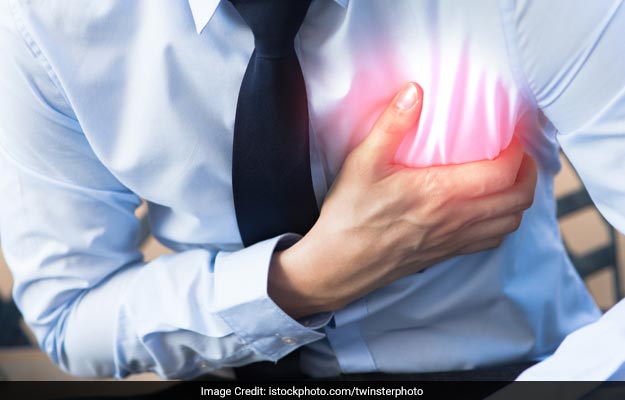According to a new research men who experience vital exhaustion, are at a higher risk of having a heart attack.

Unhealthy diet and lifestyle increases your risk of cardiovascular disease
The findings of new research suggests that men who experience vital exhaustion, are at a higher risk of having a heart attack. This risk of exhaustion linked with myocardial infarction was particularly pronounced in divorced, widowed, and men who never got married.
The study was presented at ESC Acute CardioVascular Care 2021, which is an online scientific congress of the European Society of Cardiology (ESC).
"Vital exhaustion refers to excessive fatigue, feelings of demoralisation and increased irritability," said study author Dr. Dmitriy Panov of the Institute of Cytology and Genetics, Novosibirsk, Russian Federation. "It is thought to be a response to intractable problems in people's lives, particularly when they are unable to adapt to prolonged exposure to psychological stressors."
This study examined the relationship between vital exhaustion and the risk of myocardial infarction in men with no history of cardiovascular disease. The study used data from the World Health Organization (WHO) MONICA Project.2 A representative sample of 657 men aged 25 to 64 years in Novosibirsk was enrolled in 1994.
Symptoms of vital exhaustion were assessed at baseline using the Maastricht Vital Exhaustion Questionnaire adopted by the MONICA protocol. Participants were classified according to their level of vital exhaustion: none, moderate, or high. Participants were followed-up for 14 years for the incidence of a heart attack.
Overall, two-thirds (67 per cent) of the men had vital exhaustion (15per cent had a high level and 52 per cent had a moderate level) while 33 per cent were unaffected. Nearly three-quarters (74 per cent) of men with high blood pressure had vital exhaustion - high in 58 per cent and moderate in 16 per cent.
In the overall group of men, the researchers analysed the association between vital exhaustion at baseline and the risk of having a heart attack. Compared to those without vital exhaustion, men with moderate or high levels had a 2.7-fold greater risk of a heart attack within five years, a 2.25 higher risk within 10 years, and a 2.1 raised risk within 14 years (p for all <0.05).
When the analysis was controlled for social factors (education, occupation, and marital status) and age, the influence of vital exhaustion on heart attack risk decreased but remained statistically significant. For example, compared to those without vital exhaustion, men with moderate or high levels were 16 per cent more likely to have a myocardial infarction over 14 years of follow-up compared to those without after adjusting for social factors and age (p <0.05).
In the adjusted analysis, the risk of a heart attack linked with exhaustion was higher in never married, divorced, and widowed men compared to married men - with hazard ratios of 3.7, 4.7, 7.0, respectively. The risk of a heart attack related to exhaustion was 2.2-fold higher in those with an elementary school education compared to men with a university degree. Middle-aged men were more affected than younger men: compared to 24-34-year-olds, the risk of a heart attack connected with exhaustion was 3.8-fold higher in 45-54-year-olds and 5.9-fold higher in 55-64-year-olds.
Regarding the influence of marital status on the relationship between exhaustion and heart attack, Dr. Panov said: "Living alone indicates less social support, which we know from our prior studies is an independent risk factor for myocardial infarction and stroke."
He noted that the findings indicate a pattern whereby social disadvantage relates to vital exhaustion, which is associated with a greater risk of heart disease. "The relationship of exhaustion with threatening cardiovascular events should be taken into account when assessing risk," he said.
Dr. Panov concluded: "Efforts to improve well-being and reduce stress at home and at work can help reduce vital exhaustion. Involvement in community groups is one way to increase social support and become less vulnerable to stress. Together with a healthy lifestyle, these measures should be beneficial for heart health."
(This story has not been edited by NDTV staff and is auto-generated from a syndicated feed.)
DoctorNDTV is the one stop site for all your health needs providing the most credible health information, health news and tips with expert advice on healthy living, diet plans, informative videos etc. You can get the most relevant and accurate info you need about health problems like diabetes, cancer, pregnancy, HIV and AIDS, weight loss and many other lifestyle diseases. We have a panel of over 350 experts who help us develop content by giving their valuable inputs and bringing to us the latest in the world of healthcare.














